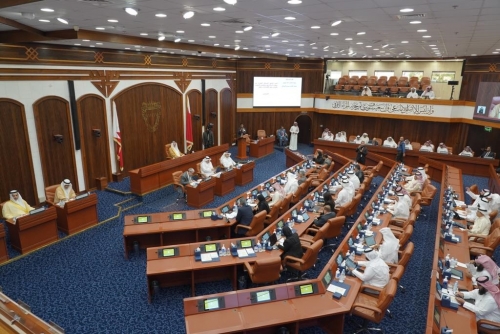The General Secretariat of the Council of Representatives recently released a report on the parliament’s performance during its second session, which spanned over seven months and included 34 meetings. The data revealed that out of the 196 bills submitted to the government, 72 were draft laws and 124 were proposals, indicating that the majority of proposals made by the MPs were non-binding. There was a significant increase in the number of proposals submitted per parliamentary meeting compared to draft laws.
During the previous parliamentary session, there was a lack of proposals focused on amending the constitution, with only one such proposal being submitted. Despite the ongoing debate surrounding the large number of non-binding proposals, the council has continued to present a significant number of proposals. Some meetings have seen heated debates among the council’s legal advisors due to the similarity and duplication of proposals, leading to the creation of a committee to determine which proposals are urgent for discussion during weekly meetings.
The remaining proposals are sent to respective committees for further study before being presented as regular proposals for voting without the urgent label. This process has sparked new debates within the council regarding the criteria for selecting urgent proposals and the alleged inconsistencies in the committee’s assessments. The council’s approach to handling proposals and draft laws has been under scrutiny due to the high number of non-binding proposals and the need for more streamlined processes for determining urgency and relevance.
The data provided by the General Secretariat sheds light on the inner workings of the parliamentary sessions and highlights the need for more efficient strategies in handling proposals and draft laws. The ongoing debates within the council reflect a desire for improved decision-making processes and a more focused approach to addressing urgent matters. The formation of a committee to study and prioritize proposals marks a step towards streamlining the council’s operations and ensuring that more relevant and urgent issues are given the attention they deserve.
Moving forward, it will be crucial for the council to address the concerns raised regarding the handling of proposals and draft laws to enhance the efficiency and effectiveness of its decision-making processes. By establishing clearer criteria for determining urgency and relevance, the council can improve the quality of discussions and outcomes during parliamentary meetings. The data from the report provides valuable insights into the functioning of the parliament and serves as a foundation for future improvements in the way proposals are handled and prioritized.










